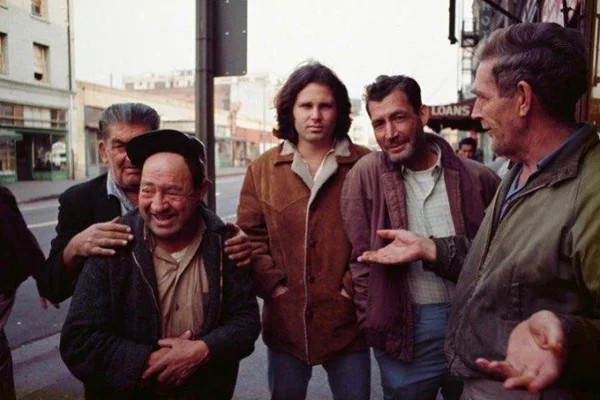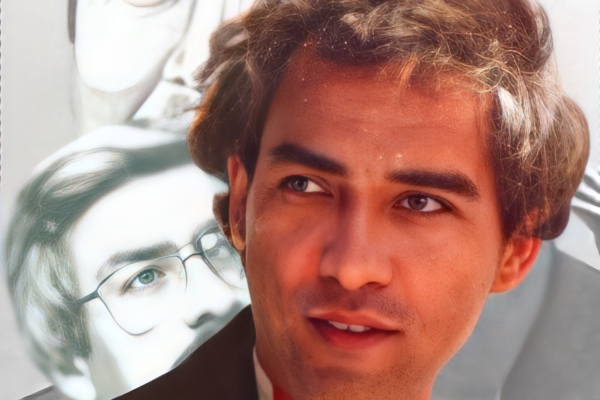Dr. Patrick Soon-Shiong’s veto of the LA Times editorial board’s endorsement of Kamala Harris for President has proven the biotech mogul to be more of a danger to journalism than the disease he originally set out to cure.
When Dr. Patrick Soon-Shiong purchased The Los Angeles Times in 2018 for $500 million, many in the journalistic world held their breath. Here was a billionaire, born in South Africa, a biotech mogul with an impressive track record in medicine and philanthropy, who promised to rescue a historic institution of American journalism from financial turmoil.

The purchase had a certain “white knight” flavor to it, as though he were going to swoop in, save the day, and restore The Times to its former glory. But the knight’s armor, as we’ve now learned, was made of glass, and Dr. Soon-Shiong has proven himself to be more of a danger to journalism than the disease he originally set out to cure.
Fast-forward to this October. The esteemed Editorial Board of The Los Angeles Times—a newspaper that once prided itself on its independence—had drafted an endorsement for Vice President Kamala Harris in her presidential bid. Given her local roots, her time as a U.S. senator representing California, and the board’s long-standing Democratic leanings, this was hardly a surprise.
But surprise, dear reader, is exactly what was in store for us. In a stunning move that has left journalists and readers alike gobsmacked, Dr. Soon-Shiong overrode the editorial board, silencing their endorsement and, in doing so, signaling that The Los Angeles Times under his ownership is no longer a free voice but a muted puppet.

The resignation of Mariel Garza, the paper’s editorial board editor, was an act of protest that speaks volumes. “I want to make it clear that I am not OK with us being silent,” she said. And that, right there, is the crux of the matter. In a democracy on the brink of something—we don’t know if it’s a renaissance or a catastrophe—silence is not golden. It’s cowardly. It’s craven. It’s dangerous.
Let’s not mince words. Dr. Soon-Shiong is a brilliant man in the medical field. But owning a newspaper, as he’s so clearly demonstrated, requires a very different kind of intellect. It requires a spine—something he appears to have left in the operating room. His justification for quashing the endorsement was that the editorial board had not followed his directive to draft a “factual analysis” of both Harris and Trump’s policies.
In other words, he wanted a balanced, side-by-side comparison, as if this were a high school debate and not an election that could determine the fate of democracy as we know it. His response reeks of false equivalence, and frankly, of someone who fundamentally misunderstands what it means to run a newsroom.
You can almost hear him now, perched atop a pile of biotech dollars, pontificating about fairness, as if the editorial board was tasked with writing a medical research paper, not offering its expert judgment in a political endorsement.
News flash, Dr. Soon-Shiong: editorial boards are supposed to take sides. They’re supposed to endorse candidates, not write academic papers for the electorate to grade.
Soon-Shiong’s quashing of this endorsement confirms the worst suspicions many had when he first bought the paper. It wasn’t just that he was a billionaire playing at being a journalist; it was that he didn’t seem to understand what journalism even is.
He bought The Los Angeles Times like it was another biotech company—something to turn around with metrics, data, and balance sheets. But a newspaper is not a lab experiment. It’s a living, breathing entity, one that serves the public good through independence and integrity. And if you don’t understand that, you have no business owning a paper—especially not one as storied as The Los Angeles Times.
What’s worse, by silencing the endorsement, Soon-Shiong didn’t just snub Harris—he snubbed democracy itself. This is a country where newspapers have long been the bedrock of informed voting. They help voters navigate the noise and chaos of election season, offering insight, judgment, and yes, opinions.
The Los Angeles Times has endorsed Democrats for president since 2008. So why, in an election where a candidate from California—no less a sitting Vice President—is on the ballot, would the paper suddenly go quiet? The answer is simple: because Dr. Soon-Shiong didn’t like the noise. He couldn’t stomach the endorsement, so he silenced it.
Now, some may argue that the owner’s prerogative should be respected, that it’s his paper to do with as he pleases. But here’s the problem: once you own a newspaper, you’re not just an owner. You’re a steward of public trust. By interfering in the endorsement process, Dr. Soon-Shiong has not only eroded that trust but forfeited any pretense that The Los Angeles Times remains independent under his ownership.
Garza’s resignation underscores the gravity of this moment. She didn’t leave quietly. No, she made it clear: “In dangerous times, honest people need to stand up.”
Her departure is a siren call for the rest of us—journalists, readers, citizens—to recognize what’s happening here. This isn’t just about one editorial endorsement. It’s about the soul of a newspaper, a community, and our democracy. And right now, all three are on the line.
The fallout from this decision will likely ripple through the newsroom, but it’s important to note: Soon-Shiong’s actions don’t just affect The Los Angeles Times. They send a chilling message to every newspaper owned by a wealthy dilettante with more money than journalistic ethics.
When billionaires play media mogul, it’s the public that loses. And in this case, Southern California has lost a crucial voice in one of the most pivotal elections of our lifetimes.
Soon-Shiong may have imagined that by quashing the endorsement, he was maintaining some form of impartiality. But in reality, he’s done the opposite. He’s taken a stand—one that aligns more closely with autocrats than with the principles of a free press.
In her resignation letter, Garza nailed it: “It makes us look craven and hypocritical, maybe even a bit sexist and racist.”
And she’s right. This isn’t just about silence; it’s about silencing. It’s about a billionaire deciding that his wealth entitles him to not only buy a newspaper but to strangle its voice.
The irony, of course, is that in trying to silence the endorsement, Soon-Shiong has amplified it. Now, more people than ever are asking why The Los Angeles Times isn’t endorsing a candidate. And in that silence, Soon-Shiong’s own misjudgment echoes louder than any editorial could.
Dr. Soon-Shiong may have saved The Times from financial ruin, but in silencing its editorial voice, he’s led it into an even greater crisis—one of relevance.
TONY CASTRO, the former award-winning Los Angeles columnist and author, is a writer-at-large and the national political writer for LAMonthly. org. He is the author of the forthcoming novel The Book of Marilyn He can be reached at tony@tonycastro.com.





